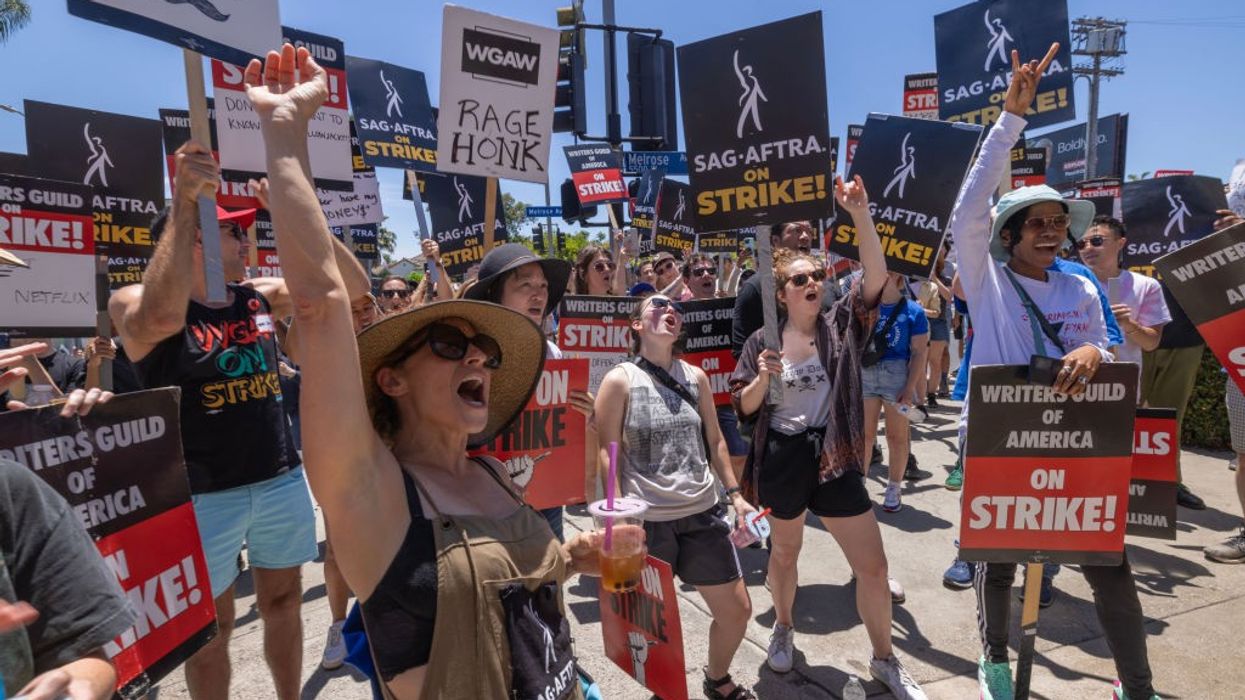"Generative AI has the potential to help those with fewer resources or experience quickly learn and develop new skills," he noted. "The real challenge, though, is how to center the dignity and economic security of working-class Americans during the changes to come. And unlike the Industrial Revolution, which spanned half a century at least, the AI revolution is unfolding at lightning speed."
"Our generational task is to ensure that AI is a tool for lessening the vast disparities of wealth and opportunity that plague us, not exacerbating them."
Khanna stressed that "today the Democratic Party is at a crossroads, as it was in the 1990s, when the dominant wing in the party argued for prioritizing private sector growth and letting the chips fall where they may," ignoring prescient criticism from former Democratic Sens. Paul Wellstone (Minn.) and Russ Feingold (Wis.), as well as Independent Sen. Bernie Sanders (Vt.), who then served in the House.
After failing to heed their warnings, he argued, "the Democratic Party cannot claim to be the party of the working class if we allow AI to erode the earnings and security of the working class. The party can be forgiven once for the mistake of abetting globalization to run amok, just not twice."
"Technologies—our technologies—are meant to complement and enhance human initiative, not subordinate or exploit it," he asserted. "We must push for workers to have a decision-making role in how and when to adopt technologies, and we must insist on workers' profiting from the implementation of these technologies. Our generational task is to ensure that AI is a tool for lessening the vast disparities of wealth and opportunity that plague us, not exacerbating them."
Underscoring the urgency of his message, Khanna pointed out that in September, "tech's biggest names trekked to Capitol Hill for a forum on artificial intelligence" that "was reminiscent of Davos conferences in the 1990s and early 2000s," and this year alone, tens of thousands of workers at hundreds of companies could be laid off and replaced with AI.
Already, AI is factoring into labor negotiations and legislative battles. After California legislators last year overwhelmingly approved Assembly Bill 316, which would have required a human driver on self-driving trucks weighing over 10,000 pounds that are transporting goods or passengers for at least five years, Democratic Gov. Gavin Newsom vetoed it.
"Tech companies argue that replacing human drivers with AI is feasible, will reduce labor costs, and will therefore make it cheaper to transport goods and services. They lobbied heavily against the bill," explained Khanna. "I supported A.B. 316 because drivers say it's currently an unnecessary risk to have large trucks on public roads without a human on board. This is especially true if there is extreme weather, hazardous conditions, or heavy cargo on board. No one understands the safety risks at play here better than the drivers themselves, and it's both foolish and insulting to suggest they would make up such concerns to keep jobs that do not add value."
"It's not just the AI concerns of truck drivers that are causing divides in the Democratic coalition," the congressman continued, highlighting that the monthslong strikes of unionized writers and actors in Hollywood last year ended with deals that include provisions about artificial intelligence.
The California Democrat—who joined striking writers on the picket line—wrote that "even though writers' jobs are very different from truck drivers' jobs, labor solidarity is one of the few countervailing forces that can blunt the dehumanization of work motivated by short-term profit maximization in a world where AI is capable of suddenly disrupting both blue- and white-collar work."
Khanna—author of the 2022 bookDignity in a Digital Age: Making Tech Work for All of Us—published the Times piece amid fears about how AI will impact everything from mass surveillance and misinformation to healthcare and war, not only in the United States but around the world.
His Thursday column won praise from progressives across the country. Lorena Gonzalez Fletcher, head of the California Labor Federation, said that his piece is "truly a must-read for any policymaker" while Katrina vanden Heuvel, The Nation's editorial director and publisher, called it an "important read and issue for now and in '28."



